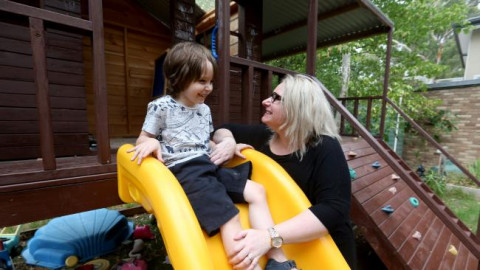
by Rick Morton, The Australian
A showdown between autism experts and the agency responsible for the $22 billion national disability insurance scheme is likely by the end of the week with some scheme managers pushing to water down evidence about what treatments work.
The NDIS agency commissioned a panel of experts to report back about the evidence base for early intervention therapies that it will offer as part of packages for children under the age of seven with autism or other developmental delays.
The Australian understands David Bowen, the chief executive of the National Disability Insurance Agency, gave a presentation in September in which he said the draft report showed “the evidence on what works for autism is still limited”.
“They want to bury the report and have a generic approach for early intervention that is not suited to children with autism spectrum disorder,” panel member Bob Buckley said.
“Basically because their estimates are seriously wrong and they didn’t allow for growth in autism/ASD numbers.”
The expert panel signed confidentiality agreements but Mr Buckley has chosen to highlight the workings of the group.
According to Centrelink data, about 73,000 children aged under 15 have either autism or Asperger’s syndrome in Australia and the NDIS must decide what funding package is considered standard for its own budget.
It initially figured about $16,000 to $18,000 but many experts argue that $50,000 a year worth of intensive therapy per child is best practice.
Mr Buckley, who runs Autism Asperger’s Advocacy Australia, said he and other panel members believed the NDIS agency was operating under the mistaken notion it could manipulate the final outcome of the report.
“I and others I’ve spoken with believe they are trying to ignore the advice,” he said. “The NDIA thought it could drive a committee in its preferred direction. It does not understand autism/ASD and is avoiding developing a proper understanding.”
Last week, The Australian revealed that the panel of about 15 experts had warned the NDIS agency that it faced spiralling costs and risked compromising the therapy outcomes for children if it didn’t appropriately model and account for the numbers who would be eligible.
Brisbane oncologist James Morton, who set up therapy provider AEIOU Foundation, said the agency risked legal action if it knowingly told parents the evidence on autism intervention was inconclusive and children subsequently missed a window of opportunity to improve their speech or other functions.
“The long-term cost to the community of ignoring expert advice will be substantial,” Mr Buckley said.
“The panel certainly said that the ‘still limited’ suggestion in the draft report was contrary to the views of most of the panel ... and many of them disagreed strongly with the people who drafted the report on that specific issue.”
A spokesman for the NDIS said there was “currently no evidence to support an overrun in costs or numbers of participants” and confirmed the autism report would be released publicly soon.
from http://www.theaustralian.com.au/nationa…
see also advocate's letter to the NDIA
note: we can no longer find the NDIA's report on Early Intervention for Autism on the NDIS website. It is available for download from here: http://a4.org.au/node/1191